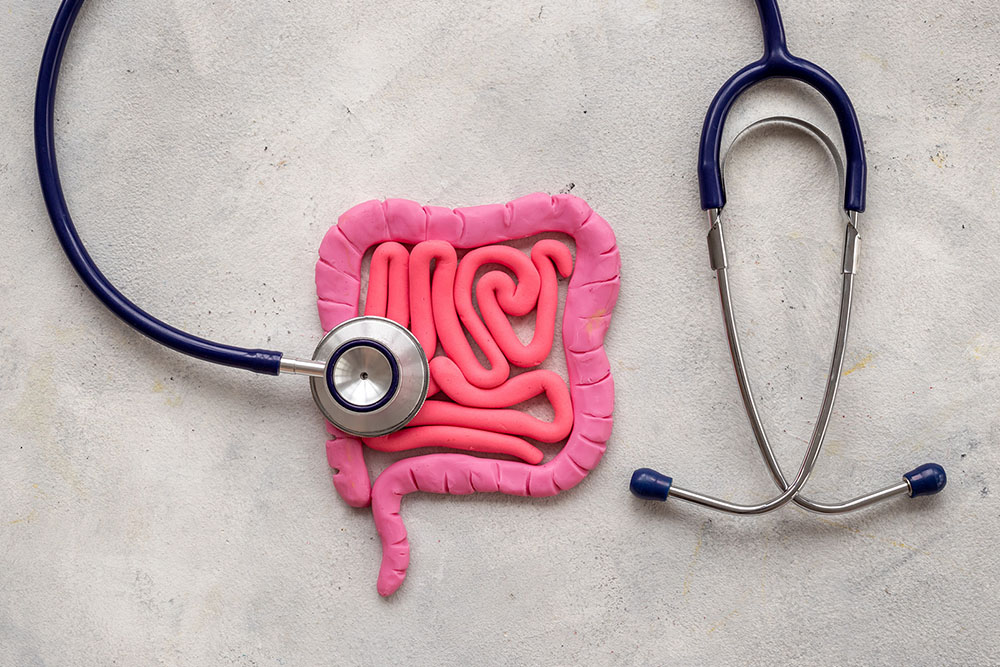What Is Ulcers?
An ulcer is a sore that forms on a body surface. In gastroenterology, most ulcers appear in the stomach or small intestine (peptic ulcers). You may also get mouth ulcers or pressure ulcers on the skin. Dr. Rishi Chadha treats all types, focusing on safe, effective relief.
Common Causes and Risk Factors
- Helicobacter pylori bacterial infection
- Long-term use of NSAIDs (ibuprofen, naproxen)
- Excess stomach acid production
- Smoking and alcohol use
- Stress, which can worsen acid balance and slow healing
- Pressure ulcers (bedsores) progress through four stages-from red skin to deep wounds-but this practice focuses on GI ulcers
Signs and Symptoms
- Burning or gnawing pain in the belly
- Bloating, heartburn, nausea
- Loss of appetite or unexpected weight loss
- Dark or bloody stools
- For mouth ulcers: small, painful white spots on the inner lip or cheek
How Dr. Rishi Diagnoses Ulcers?
Step-by-Step Evaluation
Medical History & Physical Exam
Dr. Chadha reviews your symptoms, NSAID/medication use, alcohol and tobacco history, diet, stress levels, and performs a focused abdominal exam to localize pain or tenderness.
Laboratory Testing
Noninvasive tests to detect H. pylori infection (breath test, blood antibody test or stool antigen) and a complete blood count to assess for anemia from bleeding.
Endoscopy & Imaging
- Upper endoscopy (EGD) for direct visualization of the stomach and duodenum lining, plus biopsy of any suspicious ulcers.
- Abdominal ultrasound or CT scan when complications (bleeding, perforation) or other abdominal pathology is suspected.
Additional Studies (as needed)
pH monitoring or gastric emptying studies in refractory cases, or specialized imaging to rule out rare causes.
Frequently Asked Questions
What is a peptic ulcer?
A sore on the stomach or small intestine lining caused by H. pylori infection or long-term NSAID use.
Does stress cause ulcers?
Stress doesn-t directly cause ulcers but can worsen acid balance and slow the healing process.
How do I know if I have an ulcer?
Common signs include burning or gnawing belly pain, bloating, heartburn, nausea, or dark/bloody stools.
What drink is good for ulcers?
Herbal teas like chamomile or aloe vera juice can help soothe and protect the stomach lining.
Can diet help heal ulcers?
Yes. A balanced diet rich in lean proteins, vegetables, and low-acid foods speeds recovery.
What is a 7-day meal plan for ulcers?
A sample plan includes lean meats, oatmeal, bananas, steamed veggies and non-citrus smoothies each day.
How to cure mouth ulcers fast naturally?
Use warm salt-water rinses, apply honey topically, or try over-the-counter gels for quick relief.
Are there stages of pressure ulcers?
Yes. Pressure ulcers progress through four stages-from red skin to deep tissue damage-though Dr. Chadha focuses on GI ulcers.
What procedures treat stubborn ulcers?
Endoscopic hemostasis or tissue ablation can stop bleeding and remove non-healing ulcer tissue.
How long does ulcer treatment take?
With proper medical therapy and lifestyle changes, most ulcers heal within 4-8 weeks.











